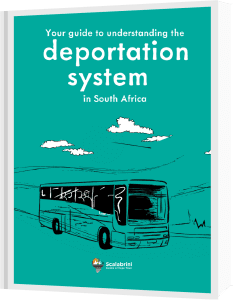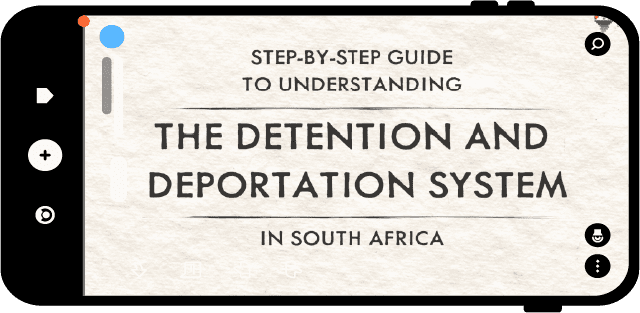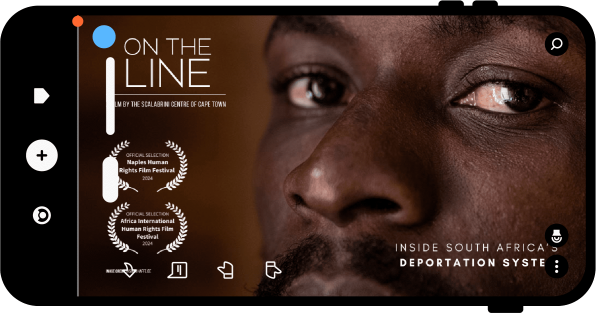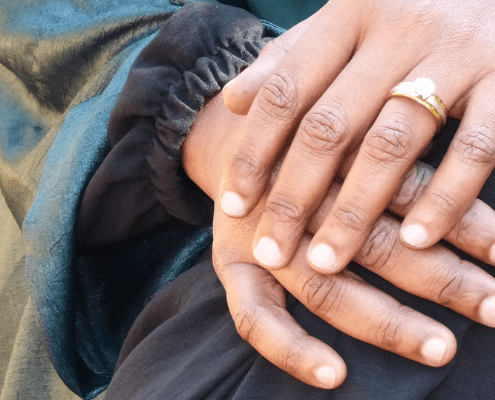 https://www.scalabrini.org.za/wp-content/uploads/2025/09/Sylvie-UNHCR-resilience-story.png
400
760
Olivia
https://www.scalabrini.org.za/wp-content/uploads/2019/05/Scalabrini_Centre_Logo.png
Olivia2025-09-25 11:16:302025-09-25 11:16:30Life lessons from farming: “you don’t give up because a harvest fails, you keep going until something grows.”
https://www.scalabrini.org.za/wp-content/uploads/2025/09/Sylvie-UNHCR-resilience-story.png
400
760
Olivia
https://www.scalabrini.org.za/wp-content/uploads/2019/05/Scalabrini_Centre_Logo.png
Olivia2025-09-25 11:16:302025-09-25 11:16:30Life lessons from farming: “you don’t give up because a harvest fails, you keep going until something grows.”These guides explain the detention and deportation process in South Africa. They also explain what you can do if you (or someone you know) has been detained. All these guides are available in English, Amharic, French, Kirundi, Lingala, Portuguese, Somali and Swahili.
Digital Guide
You can download this guide to understanding the detention and deportation system in South Africa.
Printable Guide
This printable booklet can be downloaded and printed doublesided. Fold and staple in the middle.
Short animation
You can watch this animation in English, Amharic, French, Kirundi, Lingala, Portuguese, Somali or Swahili.
Documentary
This documentary looks inside South Africa’s deportation system by hearing from different experts.
What do these guides say?
If you don’t want to download the guides or booklets above, you can also read the text below.
Your rights in detention
It is important to remember that, in South Africa, everyone has rights during detention. It does not matter where you are from, or whether you have documents or no documents – you have these rights. During detention, you have the right:
- To know the reason why you are being detained.
- To make a phone call. If you are detained, you can ask to use the phone at the police station.
- To a lawyer (or Legal Assistance organisation or Law Clinic, if you cannot afford a lawyer), and to an interpreter in court.
- To be treated with dignity (including proper accommodation / food / medical care).
- To be informed of your rights and provided information in a language you understand.
- To have visits from your family / religious counsellors / doctors.
- To be kept separate from criminal suspects.
If your rights are not being respected, seek legal help.
Remember, always carry copies of your documents with you!
(or any relevant documents about your legal stay in South Africa).
Step one of the deportation process
Only a police or immigration officer can ask for your documents to prove that you are living in South Africa legally. If they have ‘reasonable grounds’ (strong reasons) to believe you do not have legal stay in South Africa, they can detain you while they verify your status in South Africa, usually at a police station.
They can only detain you for 48 hours while they verify you, and you must be brought to court within those 48 hours or on the next working day if it falls on a weekend or public holiday.
If their investigation finds that you are an ‘illegal foreigner,’ an immigration officer should notify you, in writing, that you are being charged as an ‘illegal foreigner’. Following this, you will be taken to court. Remember, this must happen within 48 hours.
If you are not brought to court within 48 hours, you have the right to be released immediately.
At this stage of the deportation process (Step One), when you are first arrested, it is important to take action. This depends on the type of document you have. Below, find the statement that is correct for your documentation status, and follow the information to understand what you must do.
I have valid documents
(including refugee status, asylum seeker visa, any valid visa including ZEP)
- What to do: Show the officer your certified copy or original visa/permit/e-visa PDF/emails
- What happens next: You must be released – but only once the officer has successfully verified your identity documents
- Important notes: If they do not release you, seek legal help. If your document is not with you, ask the officer if someone can bring your document to you. If they do not allow this, tell them they must verify your status or identity within 48 hours. You will be released once your document is produced and your status is verified. If they do not release you, seek legal help. See page 15 of this guide.
I am a newcomer asylum-seeker, but I do not have documents
- What to do: Explain that you fled your country because it was not safe and you want to apply for asylum in South Africa.
- What happens next: At this point of the process, you should be released to apply for asylum but might be detained while Home Affairs assists you in applying for asylum at a Refugee Reception Office.
- Important notes: You should get legal help. You can contact an organisation by clicking here.
I have an expired visa or permit
- What to do: Show your expired asylum visa/permit seeker permit, refugee status or visa to the officer and explain why it is expired.
- What happens next: At this point of the process, you might be detained. You might be fined or have to serve a prison sentence. Free legal aid is available at court to assist you if you are charged for having an expired asylum seeker visa/permit or refugee status.
I do not have any legal documents. I am undocumented.
What to do: Explain to the officer why you do not have documentation in South Africa.
What will happen: At this point of the process, you may be detained or released under certain conditions. Get legal help.
I applied for asylum, but I have received a final rejection
- What to do: You should ask to be given enough time to get yourself ready to leave the country.
- What happens next: You should be given an ‘order to depart’, and a timeframe for when you need to leave South Africa by.
- Important note: If you are not given an ‘order to depart’ and you are detained, contact legal organisations immediately!
Step two of the deportation process
The police will take you to the court holding cells before your appearance before a Magistrate (a judge). The Magistrate will determine if you are a foreign national and, if so, whether you have a valid reason to be in the country.
In court, it is important that you have legal help. You have the right to a lawyer or to request legal assistance. In court, you must explain your documentation situation to your lawyer and the magistrate (judge). Be honest and provide as much information as possible.
If the judge believes you have a valid reason to be in South Africa, then they will:
- order your release or,
- order your release and direct Home Affairs to assist you with documentation.
If your valid reasons for being in South Africa are unclear, the court may allow Home Affairs to investigate further and, if justified, order your detention until you formally apply for asylum. You may remain in detention until you are brought back to court.
If the judge believes you have no valid reason to be in South Africa, they will:
- extend your detention for deportation, agreeing with Home Affairs or
- release you for deportation processing without detention, under certain conditions.
If the judge agrees that you should be charged in terms of Section 49, this is known as criminal (not administrative) detention. If found guilty you will have to serve a prison sentence or pay a fine before either being deported or getting documented, in South Africa. If it is not safe for you to go back to your country, you should challenge the detention. Please seek assistance from free legal aid.
Step three of the deportation process
If you are to be deported, you will then be held in a police station.
Generally, you will wait until you are transported to Lindela Repatriation Centre, near Johannesburg. Sometimes you are deported from a police station without going to Lindela, but this is usually only if you are being returned to a neighbouring country.
If your detention goes over 120 days, you have the right to be released.
Lindela Repatriation Centre is South Africa’s deportation centre. It is near Johannesburg.
Step four of the deportation process
Home Affairs will arrange your return. You have the right to know what is happening; when and how you will be deported.
You may be deported by bus or plane. Remember, if your detention goes over 120 days, you have the right to be released.
After deportation, you will likely be declared ‘undesirable’ (banned from re-entering South Africa) for up to five years, and this could affect your future visa applications, even after your ban is lifted.
Arranging your own return
Sometimes, you can arrange to return to your country of origin on your own. In some cases, you can arrange to leave South Africa on your own if you are able to:
- Show a valid travel document
- Buy a plane ticket (usually for a direct flight) to your country of origin
If approved, you will stay in detention until your flight date and be escorted to the airport by immigration. Your family or friends should make sure that your belongings are at the airport for you to take on the flight. If you are able to arrange your own journey back to your country, we strongly recommend that you do so – as long as it is safe for you to return. Arranging your return can often shorten your time in detention.
Remember! People who are asylum seekers (whether documented or not) and refugees cannot be deported and are protected by the principle of non-refoulement. You cannot be sent back to a country where your life, freedom, or rights would be at risk.
Organisations you can contact
If you are arrested or detained for purposes of deportation, we strongly recommend you get legal assistance. You have the right, in detention, to be visited by partners or family, and religious counsellors who might assist in finding legal assistance for you. If arrested for deportation and you cannot afford a lawyer, you should also contact a non-profit organisation, listed below.
National Immigration Detention Hotline:
WhatsApp: 081 716 8791
Toll free: 0800 079 614
Lawyers for Human Rights (Durban):
Call: 031 301 0531
Nelson Mandela University Refugee Rights Centre (Gqeberha):
Call: 041 504 1310 or 041 504 4705
University of Cape Town Refugee Rights Clinic (Cape Town)
WhatsApp: 078 594 5591
Call: 021 650 5581
Scalabrini Centre of Cape Town
WhatsApp: 078 260 3536
Call: 021 465 6433







